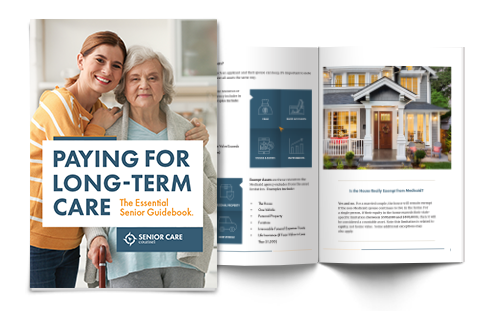Who Needs a Funeral Plan?

When it comes to end-of-life planning, many families overlook one of the most financially and emotionally taxing concerns: the funeral. The cost for even a simple burial can be several thousand dollars, and family members who haven’t had a chance to talk to their loved ones about their wishes aren’t just burdened financially. They also have to worry about whether they’re doing what their loved ones would have wanted.
That’s where funeral planning comes in. A funeral plan provides clarity, reduces stress, and ensures that your wishes are honored, while protecting loved ones from difficult decisions and expenses during an already challenging time.
But who truly needs a funeral plan? And when should you start thinking about one? Read on to find out.
What is a Funeral Plan?
A funeral plan is a written and often pre-funded arrangement that outlines how an individual’s final services will be handled. This might include preferences for burial or cremation, ceremony details, obituary information, and financial arrangements to cover associated costs.
Funeral plans come in a variety of different products, such as a funeral expense trust, preneed insurance, or final expense insurance, among other options. These policies offer different benefits and features that depend on your specific budget and circumstances.
The purpose of a funeral plan is twofold: to reduce the emotional burden on loved ones and to prevent sudden financial strain from funeral expenses, which cost an average of nearly $8,000 in the U.S.
Read more: Advance Planning vs. Medicaid Planning for Long-Term Care
Who Might Benefit from a Funeral Plan?
Almost anyone can benefit from having a funeral plan in place, but it’s particularly helpful if:
- You want to ease the emotional and financial burden on your family. Without a plan, loved ones must make tough decisions quickly and often without guidance.
- You have specific cultural, religious, or personal wishes. A plan ensures that your preferences for rituals, ceremonies, or final disposition are honored.
- You’re receiving Medicaid or preparing to qualify. Certain prepaid funeral plans can be structured to remain exempt under Medicaid rules, helping you achieve eligibility while preserving funds for your funeral costs.
- You value cost predictability. Prepaid plans can lock in rates and offer protection against inflation.
- You’re managing long-term care planning. A funeral plan is an important piece of the overall puzzle, especially for seniors coordinating estate and end-of-life matters.
When Might a Funeral Plan Not Be Necessary?
In some cases, a funeral plan may not be needed, at least not immediately. For example:
- You already have comprehensive estate plans that cover funeral instructions and funding.
- Your family has traditions or agreements in place that make planning straightforward.
- You’re young and in good health, though early planning can certainly provide added peace of mind.
Regardless, it’s wise to revisit funeral planning as your life circumstances evolve. And like other aspects of end-of-life planning, the sooner you begin the conversation, the more choices and control you’ll have.
Read more: How to Save on Nursing Home Costs
Who Can You Turn to for Help?
Creating a funeral plan doesn’t have to be daunting. In fact, many families and professionals integrate funeral planning into larger asset protection and Medicaid strategies. Want to explore whether a funeral plan makes sense for your needs? Tell us about your situation to start the conversation and bring peace of mind to life’s most personal decisions.
[FREE] GET OUR PLANNING GUIDE:
"Paying for Long-Term Care - The Essential Senior Guidebook"This guide takes a deep dive into the landscape of long-term care and how to pay for it without going broke, including the answers to your top questions surrounding Medicaid.
GET MY COPY
